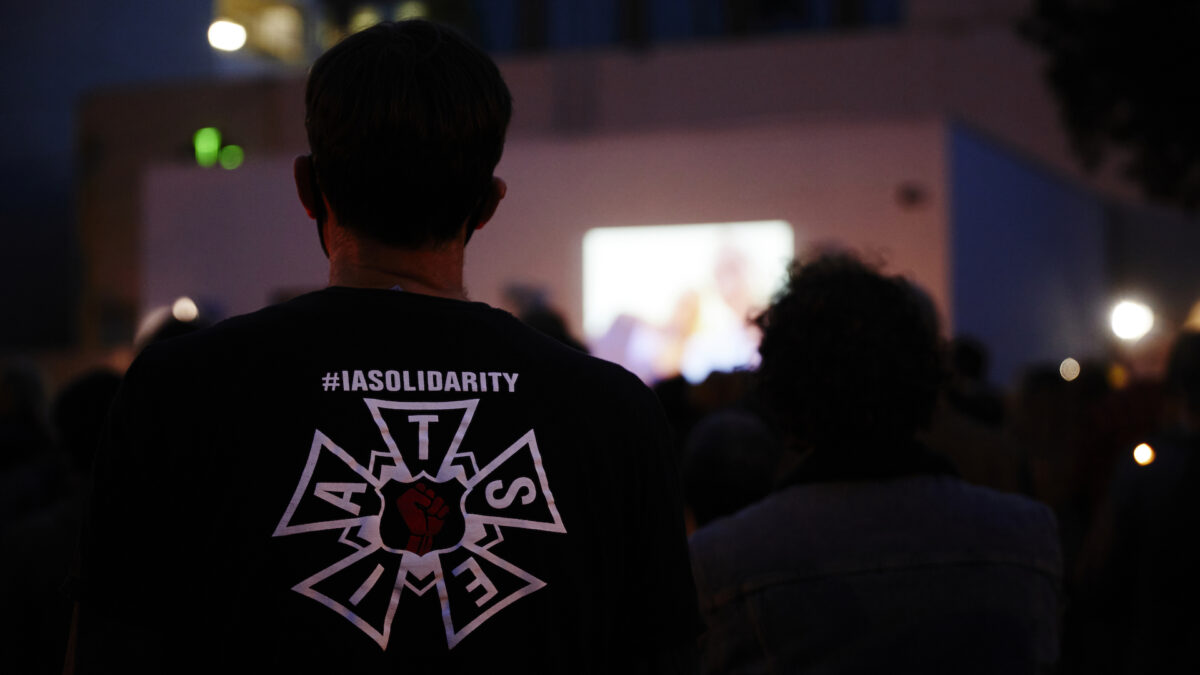
IATSE, the International Alliance of Theatrical Stage Employees, laid out its “core principles” around the use of AI in entertainment, the arts, and media, drawing a line in the sand that AI must be used as a tool and not as a means to replace workers or circumvent their rights.
“Workers in jobs that use AI should be afforded the same rights and protections as those in roles which have not historically used AI,” IATSE wrote on Wednesday. “New technology must not become an excuse to erode the conditions we’ve fought to achieve for decades, nor should it become a way to circumvent the union altogether. The implementation of AI and ML should not lead to job losses but rather should serve as a tool, complementing the work done by our members. We commit to continuing to advocate for our members’ job security in the face of AI integration.”
In a statement, IATSE International President Matthew D. Loeb added: “With AI, the stakes for IATSE members in all crafts is high. There is much work to do, but I am pleased to report the union’s efforts are already well underway.”
The guild’s language around AI comes at a time when the WGA, DGA, and SAG-AFTRA have all viewed AI as a key talking point in negotiations with the studios. IATSE’s core principles lays out eight different issues around the implementation of artificial intelligence or machine learning.
IATSE did not call for banning AI, but the organization called for greater education, training, and research on its use. It further said it would be involved in organizing and political advocacy around AI.
The guild also demanded that studios be transparent about their application of AI, regardless of what legislation is mandated, and that any negotiating around AI must be collectively bargained through the guild.
“IATSE Members will continue to be the best in the world at what we do. We have adapted to new technologies and even developed many of the tools and techniques that have pushed entertainment forward for the last 130 years. We will embrace new technologies and tackle the issue head on,” IATSE said. “We assert that our members have the right to receive adequate training and up-skilling opportunities to navigate any changes brought about by AI in their work environment.”
IATSE also said it supports the “Core Principles for Artificial Intelligence Applications in Support of Human Creativity and Accomplishment,” which was put out by the Human Artistry Campaign. Among those demands are that IATSE members are fairly compensated when their work is used to train AI systems or develop and generate new work, prioritize people involved in the creative process and protect them from theft of IP, improve transparency, and prevent legal loopholes.
While the writers guild did not make much progress on the issue of AI with the AMPTP, and the actors are in the midst of extended negotiations that involve AI as a talking point, the directors guild did manage to enshrine some language around AI in their new deal, specifically that AI is not considered a person and that the studios must consult with a director before AI is utilized on a project. IATSE too made clear they want to be involved in the discussion.
“The impact of AI on work conditions and roles falls within the scope of mandatory collective bargaining subjects. We commit to negotiating provisions that address AI into our future contracts,” the guild said. “IATSE demands transparency from employers regarding their use of AI, even in the absence of relevant government legislation. We are dedicated to safeguarding our members’ privacy rights and ensuring that AI applications adhere to the highest ethical standards, including non-discrimination and fairness. We also recognize that collective bargaining is the primary way to ensure workers do not have to wait for government regulation through legislation, which could take years or may never come at all.”
Read the full list of core principles here.















